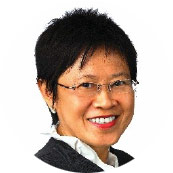Our Responsibility in Child Abuse Cases
![]() Ms Ang Bee Lian, 9 October 2020
Ms Ang Bee Lian, 9 October 2020
“If a child trusts you enough to open up about their anxiety, please don’t dismiss them.”
Dear Social Service Practitioners,
In the course of your work, you may sometimes come across children with injuries (which do not look accidental in nature) or behavioural and emotional concerns. Some children may share what is happening at home which makes you concerned about their well-being and safety. If you have reason to believe that a child is being severely disciplined or abused, you need to do something or tell someone about it.
While clear cases of child abuse require immediate reporting, less obvious cases may remain hidden behind walls, with terrified children suffering in silence. There can also be occasions where a practitioner may decide not to alert anyone or seek consultation on the case so as to protect and avoid risking the therapeutic relationship developed with the child or family. Without timely intervention, a “hidden” case of child abuse may deteriorate and lead to a child sustaining repeated injuries that can be potentially serious and might result in death. It is a reminder that practitioners have an obligation to the children whom we serve to intervene early to save a child from further harm and hurt.
In this letter, I will be sharing the definition of child abuse, the system of child protection in Singapore and resources that you must access to identify and follow-up on cases of suspected child abuse.
Defining Child Abuse
Child abuse is a term that professionals use to describe any act by parents, caregivers or any other persons entrusted with the care of the child or young person (CYP) that causes harm to a CYP’s physical, emotional and/or psychological well-being, and is judged by community values and professionals as abusive. Child abuse is generally classified in the following categories:
Physical Abuse: Any act that causes physical injury to a CYP, that is not accidental in nature. This includes deliberately causing bruises, burns, cuts and broken bones through a range of actions such as beating, shaking or excessive discipline.
Emotional and Psychological Abuse: Any act that harms a CYP emotionally or psychologically. The acts can be repeated or can be an isolated extreme incident.
Neglect: Neglect occurs when a CYP is harmed because a parent or caregiver fails to provide adequate supervision, physical shelter, food, medical care, mental health care and/or clothing appropriate to the CYP’s age and level of development. It may include situations where the parent or caregiver exposes the CYP to unsafe and/or unhygienic living conditions.
Sexual Abuse:Any act where a CYP is used for sexual pleasure or is taken advantage of sexually. It also includes exposing a CYP to sexual acts or pornography.
Understanding the Management of Child Protection Cases in Singapore
Child protection concerns operate on a continuum, with intervention from either the community, more specialised partners or the State (Child Protective Service (CPS), Ministry of Social and Family Development). Generally, a more serious concern requires higher levels and more intrusive interventions, with CPS stepping in when warranted.
CPS will intervene in situations where there are serious child protection concerns posed to the CYP e.g. sexual abuse, severe neglect and cases with serious injuries inflicted by the parent/caregiver. Such cases must be reported immediately to CPS.
For situations that do not require statutory intervention, CPS may refer the families to community-based Child Protection Specialist Centres (CPSCs), for ongoing counsel and support. Examples include cases that have inappropriate or excessive discipline, but caregivers were willing to receive help and improve on their parenting methods.
For families facing high levels of emotional and economic stress, which may adversely impact CYPs in the future, CPS may refer the families to Family Service Centres (FSCs) and other social service agencies. Examples of such cases will include families who need caregiving support, financial assistance or counselling to better cope with stressors and provide adequate care for CYPs.
How Can I Better Manage Child Abuse Cases?
- Get trained in identifying suspected child abuse
- MSF provides training to professionals in the community (e.g. social service agency staff, teachers) to use the Sector Specific Screening Guide (SSSG) and Child Abuse Reporting Guide (CARG). The SSSG and CARG guide professionals on managing reports of suspected child abuse, and the follow-up thereafter to ensure the safety and well-being of the children.
- Get advice from a specialist agency when you come across a suspected child abuse case. These agencies are:
- Big Love Child Protection Specialist Centre
Operating hours: Monday – Friday, 9.00am – 6.00pm
- HEART@Fei Yue Child Protection Specialist Centre
Operating hours: Monday – Friday, 9.30am – 5.30pm
- PAVE Integrated Services for Individual and Family Protection Specialist Centre
Operating hours: Monday – Friday, 9.00am – 1.00pm; 2.00pm – 6.00pm
- Big Love Child Protection Specialist Centre
- Reporting suspected cases of child abuse
- If the child's life is in danger, please call the police at 999 immediately
- Child Protective Service Helpline at 1800-777 0000
(Operating hours: Monday - Sunday, 7.00am - 12 midnight) or email at MSF_CPSintake@msf.gov.sg
- When reporting, it would be helpful to provide as much information as possible, if the information is available:
- Description of injuries, abuse, neglect
- Location of abuse
- When and how did you find out about the abuse
- Child(ren)’s name, age, address, school
- Name of the alleged person causing harm, age and relationship to the child(ren)
- Your name and contact details
Child protection is a collective responsibility. We need everyone in the community to be on board and report suspected cases of abuse so that networks can be strengthened to prevent child abuse and keep our children safe.
 | MS ANG BEE LIANDirector of Social Welfare (1 Nov 2013 - 30 Jun 2020) |